Social / Demographics
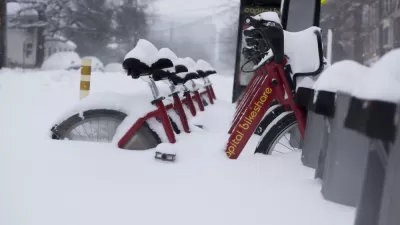
Toward an Equitable Bikeshare System
The Better Bike Share Conference convened in Philadelphia on June 22-24, 2016. Attendees gathered to find solutions for challenges of equity, social justice, and mobility in the country's emerging bikeshare infrastructure.

More Residents and Workers Using Fewer Parking Spaces in Philly's Center City
The findings of a report on changes occurring in Philadelphia Center City finds more residents and workers walking, biking, and taking transit. (Thankfully, they aren't all looking for parking every day.)
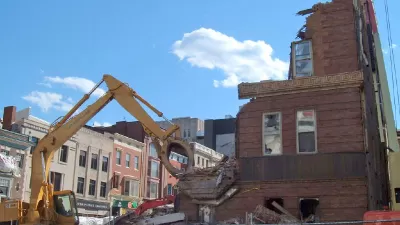
National Initiative to Address Structural Racism in Cities
Five U.S. cities will examine how their government operations impact people of color, and come up with solutions to advance racial equity.
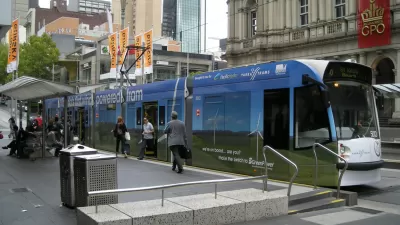
Debate: Why Did Trams Die in the 20th Century?
A Toronto professor pushes against Christian Wolmar's assertion that the tram's demise can be connected to anti-worker policy. For one thing, trams never went away in some cities.

Energy Agency Totals Annual Death Toll from Air Pollution at 6.5 Million
The study by the Paris-based International Energy Agency finds a direct connection to the energy industry. Credit goes to IEA executive director Fatih Birol for expanding the organization's mission beyond its traditional purpose, energy security.

What 6,000 Years of Population Data Looks Like
We can now watch 6,000 years of urban settlements and movements unfold on our computer screens.
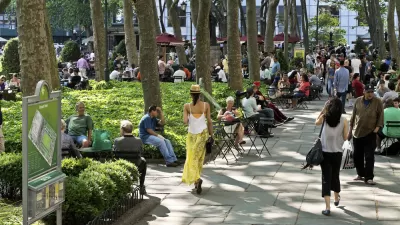
Prioritizing Park Equity in Planning and Policy
The APA blog issues a call to action to promote park equity.
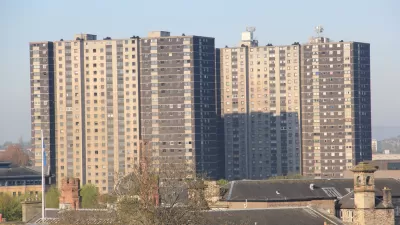
Glasgow's High Mortality Rate and a History of Poor Planning
Decades of poor urban planning and policy decisions have contributed to "the Glasgow Effect," which has seen higher rates of mortality for Glaswegians compared to similar de-industrialized cities.

Mapping The Movement of *Some* Millennials
The in-migration of Millennials is largely driving the changes that American cities are going through. More specifically, it is the ones with college degrees who are driving the change. Where are they moving, and what is their effect?

Voters to Decide Future of San Francisco Homeless Tent Encampments
Unable to pass the measure themselves, four San Francisco Board of Supervisors approved a ballot measure for November that would let voters decide on the removal of tent encampments in the city providing that housing is offered.
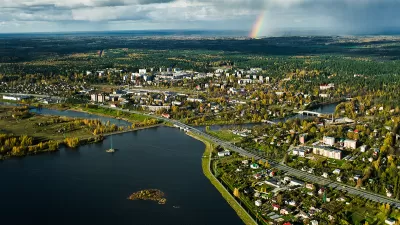
Metropolitan Corridors Absorb Rural Counties
As urban economies continue their upward trajectory, residents of counties once considered rural are commuting to cities. This has had both negative and positive effects on the communities in question.
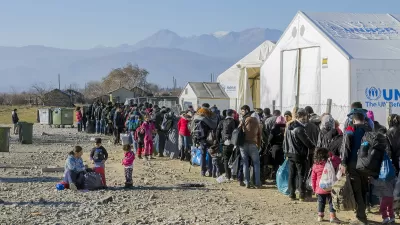
Record Number of People Displaced Around the World in 2015
The United Nations is calling for action in the face of a record number of people were displaced—more than half of all refugees around the world came from Syria, Afghanistan, or Somalia.

Only Three Cities Pass the 'Trilemma' Test
Good jobs, affordable housing, and quality of life rarely come in a total package. In fact, according to new analysis from the Oregon Office of Economic Analysis, only three cities in the United States combine all three.
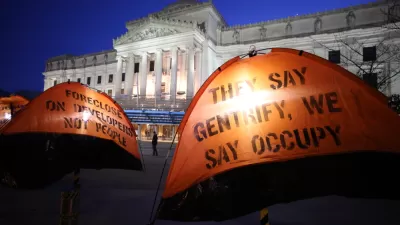
How to Counter Argue 5 Common Myths About Gentrification
Not all issues are as simple as people would like them to be, but that's especially true regarding gentrification. A recent Washington Post article is helpful for arming your arguments with evidence in the ongoing debate about gentrification.

Are Ride-Hailing Services Complementing or Competing with Rail Transit?
A news report on Charlotte's Lynx Blue Line looks at whether ride-hailing services are complementing rail transit by providing vital first mile-last mile service or whether customers are forgoing the transit trip entirely. Ridership has been falling.

Photos: 60 Streets Called Martin Luther King
A photo series documents some of the many different U.S. streets named to honor MLK.
Did Amazon Really Just Create a Pop-up Homeless Shelter?
As cities around the U.S. scramble to figure out how to address the housing affordability crisis, one of them has now leaned on the benevolence of what some consider the least benevolent of them all.

New Promise Zones Include South Los Angeles
South L.A.'s inclusion in the Promise Zones program marks a shift in the way the federal government measures poverty.

What Millennials Want, and Why it Doesn't Matter
The debate about whether Millennials prefer urban or suburban misses a big, important point: what Millennials really prefer is possible in either setting.
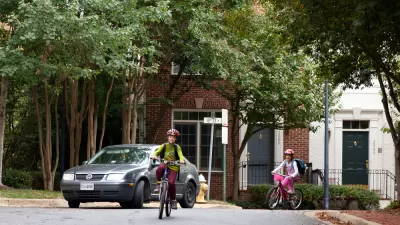
Op-Ed: Jane Jacobs Wouldn't Recognize the Cities of Today
Without children at the center of activity, the urban neighborhoods of today offer little compared to the ideals expressed by Jane Jacobs, according to this strongly worded critique of contemporary urbanism.
Pagination
Urban Design for Planners 1: Software Tools
This six-course series explores essential urban design concepts using open source software and equips planners with the tools they need to participate fully in the urban design process.
Planning for Universal Design
Learn the tools for implementing Universal Design in planning regulations.
Gallatin County Department of Planning & Community Development
Heyer Gruel & Associates PA
JM Goldson LLC
Mpact (founded as Rail~Volution)
City of Camden Redevelopment Agency
City of Astoria
Jefferson Parish Government
Camden Redevelopment Agency
City of Claremont


































